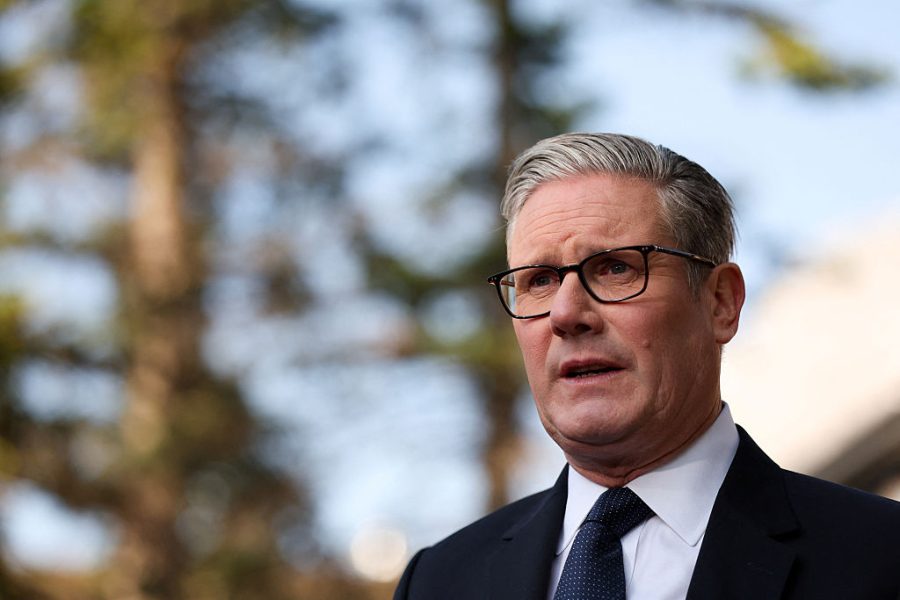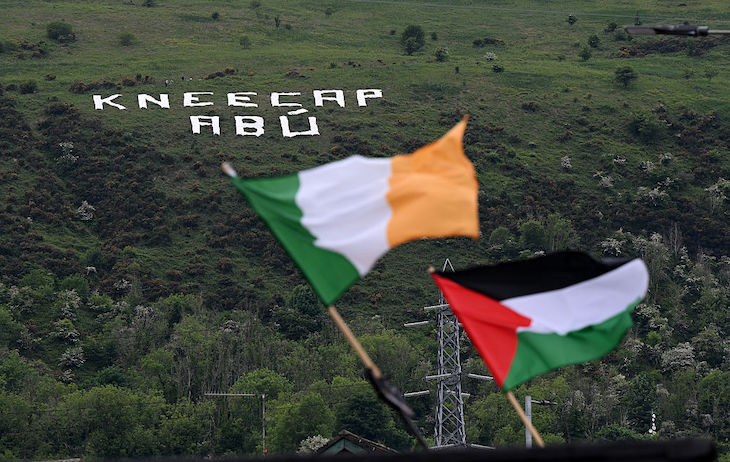As Donald Trump hastily dashed home from the G7 meeting in Canada to deal with the escalating conflict between Iran and Israel, Prime Minister Keir Starmer went to speak to reporters. The G7 resolution on Iran, he said, ‘was about de-escalation’. ‘The thrust of the statement is in accordance with what I was saying on the way out here, which is to de-escalate the situation, and to de-escalate it across the region rather than to escalate it,’ he added.
The Prime Minister has clung doggedly to this line since the first reports came through early last Friday morning of massive and coordinated Israeli air strikes on Iran. That afternoon, Downing Street announced that Starmer had spoken to his counterpart in Jerusalem, Benjamin Netanyahu. The read-out was almost a caricature of Starmer’s mugwumpish, hand-wringing approach to public affairs:
This is not merely an existential threat to Israel
The Prime Minister was clear that Israel has a right to self-defence and set out the UK’s grave concerns about Iran’s nuclear programme. He reiterated the need for de-escalation and a diplomatic resolution, in the interests of stability in the region.
In other words, the UK fully appreciated and understood Israel’s anxieties and the threats it faced, but would rather, on balance, it did not act to alleviate them because that would only lead to unpleasantness.
This knee-jerk response supporting a ‘need for de-escalation’ is not just a mimsy progressive instinct that, as Harold Macmillan once said, ‘jaw, jaw is better than war, war’. Macmillan, a hawk on Suez until he wasn’t, never believed that as a universal principle in the way that Starmer seems to. There is a deeper and more unsettling inference to be drawn: that stepping back from armed conflict is always the preferable option because military action is never really justified and that – and this is the key – war is a failure of diplomacy between morally equivalent actors. By that reasoning, one should never favour conflict, with negotiation is always preferable.
In the case of the conflict between Israel and Iran, this is emphatically not the case; Starmer is deluding himself and damaging our national interest if he cannot see a distinction.
Israel, the only recognisable liberal democracy in the Middle East, is a long-standing ally of the United Kingdom. It has faced existential threats since its declaration of independence in May 1948. Iran, by contrast, since the Islamic Revolution of 1979, has been definitionally an enemy of the West and of Western interests. The Islamic Republic of Iran does not recognise Israel’s right to exist: Israel’s destruction has been central to Tehran’s foreign policy for nearly 50 years.
This is not merely an existential threat to Israel. On 5 November 1979, the supreme leader of Iran, Ayatollah Ruhollah Khomeini, declared that ‘the Great Satan is America that gathers around other devils blatantly’. Meanwhile, the United Kingdom is ‘the old fox’, a malign agent of intervention which remains an implacable enemy.
Iran has sponsored Islamic terrorism across the Middle East and around the world: through the Islamic Revolutionary Guard Corps (IRGC), it has trained, supplied and assisted Hamas, Hezbollah, Palestinian Islamic Jihad, the Taliban, al-Qa’eda, the Houthi movement, the Mahdi Army, the Badr Organisation, Saraya al-Mukhtar and the al-Ashtar Brigades in Bahrain. It is now also closely tied into the ‘Axis of Upheaval’, or ‘CRINK’: China, Russia, Iran and North Korea.
The Islamic Republic of Iran is not a state with which the West can have sustainable long-term relations. It funds and foments violence against us and our allies, and it seeks to develop nuclear weapons. It also exercises a potentially devastating control over one of the four or five most important global maritime chokepoints in the Strait of Hormuz, through which a quarter of the world’s oil and a third of its liquefied natural gas must transit.
Perhaps, then, the Prime Minister should think again. Do we really benefit from the ‘de-escalation’ of a conflict between Israel and Iran in which the early signs are that Israel has delivered catastrophic blows to the Tehran régime’s capabilities and infrastructure? Iran has lost the head of its armed forces, the head of the IRGC and half a dozen other senior military leaders; Major-General Ali Shadmani was appointed to lead the armed forces’ combatant HQ, Khatam al-Anbiya Central Headquarters, after its previous commander, Gholam Ali Rashid, was killed, then was himself killed by an air strike after four days in post. The Islamic Republic is in a critical condition.
Negotiations to accommodate or constrain Iran have never yielded a long-term solution because such a co-existence is impossible. There is no need for UK armed forces to wade into this fight – we lack any meaningful capacity to do so anyway – but it is hard to see how our interests are not served by an Iranian defeat and, potentially, regime change in Iran. Israel is fighting because it feels it must.
Explain, Sir Keir, to those of us struggling to understand, how ‘de-escalation’, giving Iran breathing space and halting Israel’s devastatingly effective military campaign, is in Britain’s strategic interests. Iran is on the ropes, and it would be an act of criminal folly to force our way in and offer to mop its brow now.








Comments